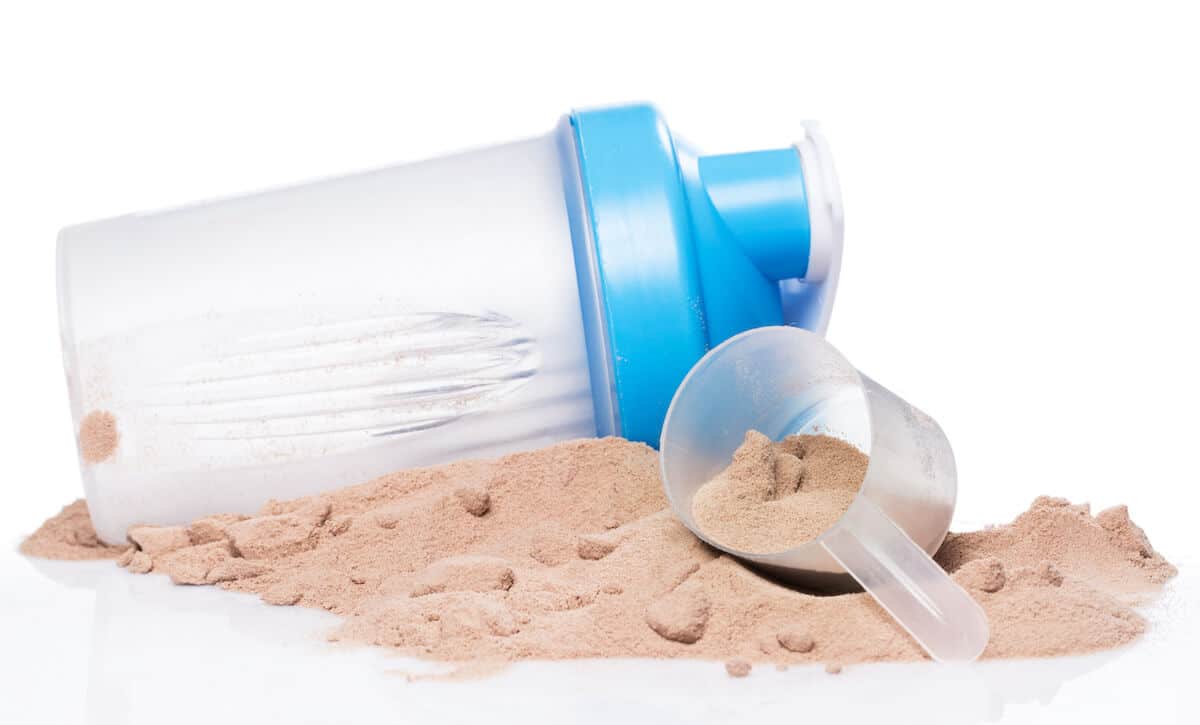
20 Oct Post-Workout Supplements: How to Choose the Best Option for You
It’s critical to refuel after a tough workout to support performance and muscle recovery. But with so many recovery products on the market, you might be wondering how to pick the best post-workout supplements to help you reach your goals.
While everyone has different nutritional needs based on health concerns, diet, and lifestyle, some common components of post-workout supplements can aid the recovery process. Let’s take a closer look at what post-workout supplements do and how to find the best options for you.
What Are Post-Workout Supplements?
Post-workout supplements are designed to aid in muscle growth and recovery. They differ from pre-workout supplements, which typically provide an energy and endurance boost.
As the name implies, you consume your post-workout supplements after your training session (or sometimes during). Common post-workout supplements include branched-chain amino acids (BCAAs), glutamine, casein protein, and whey protein.
The reason you take post-workout supplements after your training session is to help your body recover. Each time you exercise, you create small tears in your muscle fibers. As your body rebuilds muscle tissue, your muscles grow stronger and larger. Post-workout supplementation is meant to help them do so more effectively by feeding them the building blocks for muscle recovery.
Many anecdotal reports note reduced muscle soreness, an easier time with the next workout, and improved overall wellness when taking a high-quality post-workout supplement.
Are Post-Workout Supplements Safe?
The Academy of Nutrition and Dietetics, Dietitians of Canada, and the American College of Sports Medicine support the use of carbohydrate and protein-rich foods such as bars, electrolyte supplements, and protein drinks following exercise. The purpose of these supplements is to replenish glycogen and protein stores.
The stance of these organizations towards ergogenic aids (substances that enhance energy production, recovery, and use) is somewhat different because few products are backed by evidence. However, branched-chain amino acids (BCAAs) and creatine were noted as potentially effective.
In short, if you exercise regularly and want to improve athletic performance or muscle building, aiding your recovery with post-workout supplements is approved by experts. Still, it’s best to talk to your healthcare practitioner before adding new supplements to your nutrition plan as each person’s dietary requirements are different.
Do You Need to Take Post-Workout Supplements?

When you start a new exercise routine, it’s tempting to buy the best pre-workout and post-workout supplements to ensure you get the best results. But supplements will not shortcut your path to your fitness goals.
In reality, you need a well-planned workout routine and excellent nutrition from your diet as the foundation for any fitness goal. Supplements, while helpful, are the cherry on top. They’ll help your body recover from high-intensity workouts, but they will not do the work for you.
Before you begin any supplement routine, speak with your doctor and ask yourself these questions:
- What are my goals? For instance, if you’re aiming for weight loss, pre-workout supplements may help boost your metabolic rate. However, post-workout recovery supplements may work against weight loss because they’re easily absorbable to help your body with repair, recovery, and improving muscle strength.
- How do I feel before and after workouts? Supplements can help you cope with pre- and post-workout fatigue. Pre-workout supplements can give you the boost you need to get to the gym while post-workout supplements can help you recover more quickly if you’re feeling too tired to train regularly. While sore muscles are a part of working out, if you’re too sore from training three to four times a week, post-workout supplementation could be the answer to better muscle repair.
- Have I explored my alternatives? Supplements are convenient, but they’re also pricey. They’re also meant to support a balanced diet, not replace one. Experimenting with alternatives can help you decide what supplementation you need. For example, caffeine can serve as a pre-workout booster and is included in many pre-workout supplements. Protein eaten in the form of whole foods can support post-workout recovery. Carbs from whole foods like rice or sweet potatoes help restore muscle glycogen stores to assist your body’s recovery process.
While post-workout supplementation is an effective way to reach your fitness goals, you need a well-planned diet and exercise program above all else. Everyone has different needs, and the decision to include a post-workout supplement in your diet should be made based on how your body responds to exercise. Consult a sports nutrition specialist for more personalized dietary recommendations.
Best Post-Workout Supplement Ingredients

Once you’ve decided to add a post-workout supplement to your diet, it can be tempting to buy the cheapest protein powder you can find and be done with it. But if you want to support your body with optimum nutrition, it’s worth your time to find the best post-workout supplements for your goals.
Below, we’ve highlighted key ingredients that support post-workout recovery to point you in the right direction.
1. L-Glutamine
L-glutamine is one of the most abundant essential amino acids in your body. It aids in muscle protein synthesis, allowing you to get the most from your protein intake. It may also help stimulate the release of natural growth hormones while staving off muscle soreness. L-glutamine can also provide a healthy boost for your immune system while reducing fatigue and supporting intense training.
2. Leucine
Of all the BCAAs, leucine may be the most anabolic, operating primarily through the mTOR (mammalian target of rapamycin) pathways. MTOR pathways signal cell growth and proliferation, which is beneficial for bodybuilding and other activities where an increase of muscle mass is the goal. In addition, leucine supplements may help increase muscle protein synthesis, stabilize your blood sugar, and decrease protein degradation.
3. Whey Protein
Whey protein isolate is rich in BCAAs, which support healthy post-workout recovery. In particular, it’s rich in leucine, and as we just learned, leucine operates through the mTOR pathways, which are responsible for muscle protein synthesis and growth. A whey protein supplement can flood your system with amino acids after your workout is complete, providing easily assimilated building blocks to help your muscles recover.
4. Creatine
Creatine is a time-tested post-workout supplement that can aid in the increase of fat-free mass (muscle) and strength. You deplete the creatine stores in your muscles as you exercise, so taking this supplement after an intense training session is ideal. You’ll see different types of creatine on the market, the most common of which include creatine anhydrous and creatine monohydrate. Creatine anhydrous is a dehydrated form of creatine monohydrate, so it provides more creatine per gram of supplement.
5. L-Carnitine
L-carnitine is a valuable chemical that protects your muscles from damage while assisting in the process of turning fat into energy. It may also help reduce muscle degradation while allowing for a quicker recovery after each training session. L-carnitine may also assist with increasing muscle mass, decreasing body fat, and reducing mental fatigue.
6. Electrolytes
Electrolytes such as potassium are electrically charged minerals that help your body with work, such as muscle contraction and nerve signaling. Extended periods of high-intensity exercise lead to a loss of hydration and electrolytes in the body. Taking electrolytes after your workout can help support your body’s vital functions and enhance post-workout recovery. Many electrolyte blends also include vitamin C, and while vitamin C isn’t an electrolyte, it may also help reduce muscle soreness.
Choosing Your Post-Workout Supplement
Now that you’ve learned about some of the best ingredients for post-workout supplements, it’s time to choose. Add any dietary preferences or restrictions (e.g., gluten-free, non-GMO, vegan, organic, keto) to the list of what you’re looking for if needed.
If you haven’t spoken with your doctor, dietician, or sports nutrition specialist, now is the time. A professional can help you find a post-workout supplement that will support your specific workout routine, whether that’s weight lifting or training for a marathon.
Look for brands that emphasize high-quality ingredients above all else. You want to give your muscles the best building blocks if you desire great results. Take a look at these Ingredient Optimized products that can support your post-workout supplementation needs:
- ioLeucine: Leucine was high on our list because it’s a highly effective BCAA for post-workout recovery. ioLeucine is optimized for higher bioavailability than standard leucine, making it an ideal recovery product.
- ioBCAA: With so many BCAAs on the list, why not just take a BCAA powder? With ioBCAA, you’re getting increased bioavailability for total-body support after each workout. Stay on the lookout for this to hit store shelves.
- ioWhey Protein: Whey protein is one of the most popular workout supplements, but you don’t want to settle for just any brand. ioWhey has been scientifically proven to function better than non-optimized whey protein. You might try ioWhey Protein or Kaged Muscle Clean Meal if you’re interested in an optimized supplement.
- ioPea Protein: If animal products are not an option, you can still have a protein shake to help with post-workout recovery. With ioPea, you’re getting even better bioavailability and performance than you would with standard whey protein. You can also try an optimized blend, such as Performix ioPlant or Kaged Muscle Plantein.
These are just some of your many options for supporting your body after intense training sessions. Whether you add just one product or multiple supplements to your diet, remember to observe your body to understand better how it is responding to the changes. In addition, it can help to keep notes in a workout log to track your improvements.
Support Your Body For Every Workout
Supporting your body before and after every training session is essential for improving performance and muscle growth, and post-workout supplements are an excellent way to help. They’re backed by science, offer a number of benefits depending on the product and ingredients, and come in a wide variety of options.
It’s best to consult a trained sports nutrition or healthcare specialist before making changes to your diet. A professional recommendation can be the difference between optimum nutrition and substandard performance.
For total post-workout support, you’ll want products with increased bioavailability, like those offered by Ingredient Optimized (io). The io process enhances the protein structure in each supplement to allow your body’s digestive enzymes to break it down and use it more easily. For more options, check out our guide on muscle recovery supplements for peak performance.


